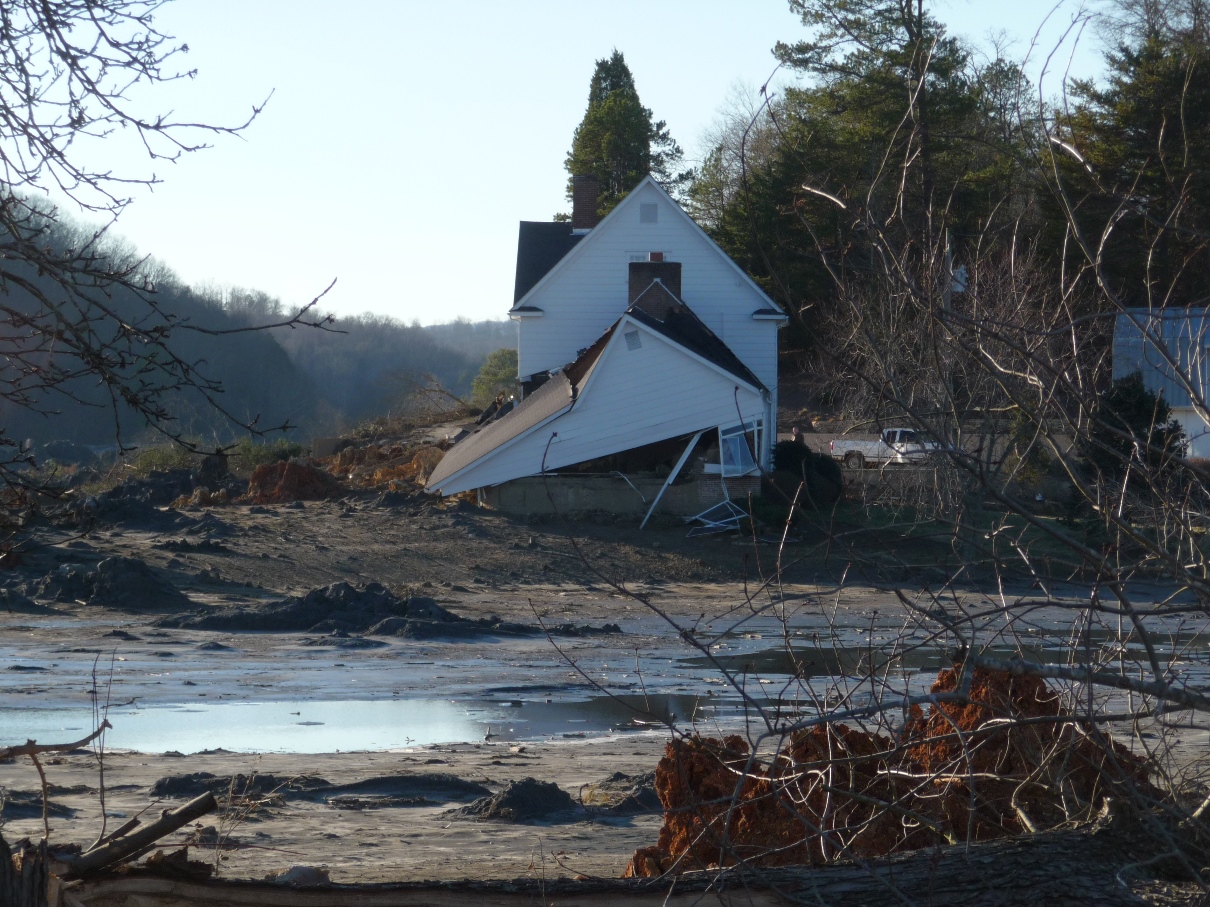This Saturday marks 10 years since the tragic coal ash spill in Roane County, Tennessee. On Dec. 22, 2008, the impoundment at the TVA Kingston coal plant failed, releasing 1 billion gallons of toxic coal ash onto 300 acres of land and into the Emory and Clinch rivers. While it’s been 10 years, the threats posed by toxic coal ash to our families remain just as serious, both in Tennessee, where I grew up, and across the nation.
Only recently did the workers who helped clean up that toxic mess in Tennessee receive a judgment that they can seek damages for being told by supervisors to work without protection:
More than 30 workers who cleaned up the December 2008 spill at the Tennessee Valley Authority Kingston Fossil Fuel Power Plant in Roane County are dead, and more than 250 others are sick or dying.
The stories that came out of that trial were horrifying -- workers were prohibited from wearing breathing masks and other protective gear and were told by bosses that they could eat a pound of coal ash a day without harm. My heart breaks for the families who lost a loved one due to illness caused by cleaning up the TVA coal ash spill, and for the hundreds who were sickened by it and continue to struggle today.
Coal ash is a problem nationwide -- from the Duke Energy coal ash spill in North Carolina’s Dan River in 2014, to recent reports of coal ash contamination in water all around the U.S.
Coal ash is the toxic waste left over from coal-burning power plants and contains some of some of the deadliest known toxic chemicals, including heavy metals like arsenic, lead, mercury, and chromium. For decades, coal ash disposal was subject to no Environmental Protection Agency oversight whatsoever, and this waste was dumped into more than 1,000 giant unlined pits, where toxic chemicals then seeped into water and soil and blew into the air in dozens of communities nationwide. Exposure to these toxics raises the risk for cancer, heart disease, and stroke, and can inflict permanent brain damage on children.
The lingering coal ash at the Kingston site in Tennessee continues to be a problem -- nearby groundwater is still testing positive for toxic materials and the sports complex for kids built on the spill site may be contaminated.
Coal ash is a problem nationwide -- from the Duke Energy coal ash spill in North Carolina’s Dan River in 2014, to recent reports of coal ash contamination in water all around the U.S. For example, a coalition of groups (including the Sierra Club) recently released a report highlighting groundwater contamination at 90 percent of coal ash sites around Illinois.
In fact, the Sierra Club and our allies brought to light scathing new information about the extent of the problem just this week, in a filing against EPA in federal court:
Sixty seven coal plants across 22 states in the U.S. are reporting that toxic contamination in groundwater at their coal ash impoundments exceeds federal health standards, according to data from multiple utility filings obtained by a band of environmental groups.
Meanwhile, the federal standards aimed at keeping us safe from toxic coal ash -- standards that aren’t even strong enough to begin with, as determined in a recent court victory for Sierra Club and our allies -- are being rolled back by the Trump administration.
We are taking legal action to oppose the Trump rollbacks, and we are demanding strong federal standards to monitor our groundwater and force coal plant operators to clean up leaking pits that are contaminating the water we drink and the streams, rivers, and lakes where we recreate. Our families do not deserve to be exposed to the dangerous coal ash pollution affecting communities in Tennessee, Illinois, and all across the country.
Instead, we all deserve clean air and clean water -- and coal lobbyists at the highest levels of our government -- we’re looking at you, EPA Administrator Andrew Wheeler -- must not be allowed to intentionally write weak standards that put the public’s health at risk.
